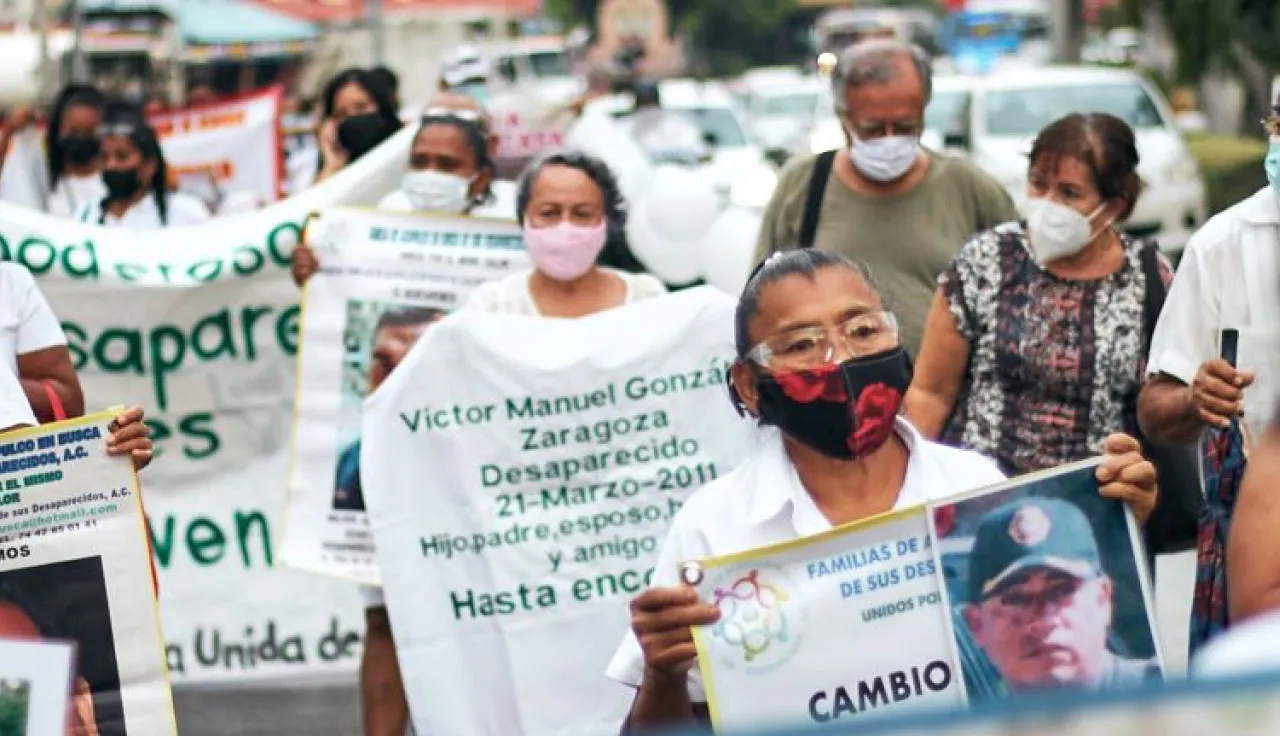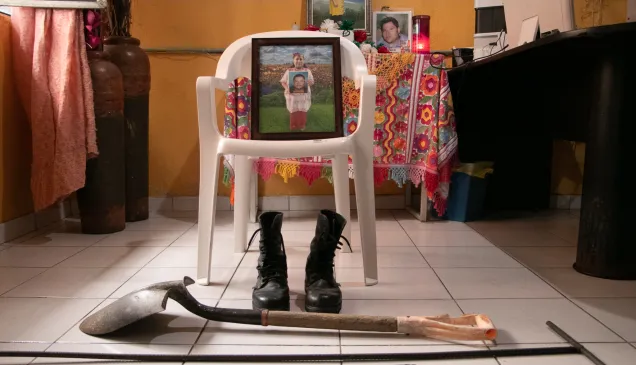Mexico City. Five years ago the Missing Persons Act entered into force on the back of unprecedented citizen action in Mexico led by the families of missing people. The regional delegation of the International Comittee of the Red Cross (ICRC) recognises that this important law lays the foundations for protecting missing people and their loved ones. Nevertheless, on the occasion of the law's fifth anniversary, the humanitarian organization urges to remove the concept of "unlocated person" from the legislation, as it frequently slows down the search process.
According to the law, an unlocated person is one "whose whereabouts are unknown" and whose "disappearance is not crime-related". Investigative steps that should be followed in the first few hours after a person has gone missing –such as trying to find them using real-time geolocation and checking their phone call log– can currently be requested only when a crime has presumably been committed. This leaves unlocated persons without the protection they need.
"Everyone who goes missing has the right to be looked for immediately, irrespective of the circumstances surrounding their disappearance. Remember: the first few hours are critical for the search," said Adriana Pozos, coordinator for the ICRC's missing persons programme in Mexico.
Based on its experience in providing legal advice to states, the ICRC believes that removing the concept of unlocated person from the law would give greater legal protection to all missing people. The law would then recognize as missing any person whose whereabouts were unknown, irrespective of whether their disappearance was crime-related.
"This would enable the search commissions, the specialist public prosecutors and other branches of the National Search Commission to take all the relevant steps immediately, from the first day that someone goes missing, and would remove restrictive interpretations of the law and unnecessary formalities," said María Elizondo, a legal adviser at the ICRC.
The humanitarian specialists also emphasized the need to provide specialised prosecutors' offices and search commissions with the necessary legal tools and human and financial resources to enable them to act and properly form interdisciplinary search groups with a differentiated approach capable of activating the immediate search for migrants, women, people with disabilities, among others, who are missing.
The ICRC recognizes the progress made in implementing the law since it came into force five years ago. This includes the 32 local search commissions that have been set up and the adoption and entry into force of the Standardized Protocol for Searching for Missing Persons and the Guidelines for the Mechanism Supporting Foreign Search and Investigation Activities (MAEBI) in relation to migrants who have gone missing.
Likewise, the ICRC acknowledges the special mechanisms that have been created to support the search for different categories of missing people, such as the Round Table on the Search for Missing Migrants and the Special Mechanism for Forensic Identification.
Despite these positive steps forward, the ICRC stresses the need to thoroughly examine and review the legislation to strike a balance between what has been achieved and what needs to be strengthened. This must involve the families of missing people and local authorities.
Moreover, the ICRC believes that a policy of preventing disappearances is crucial for tackling this scourge. More than 110,000 families are currently without news of what has happened to their loved ones.
In the last five years, the ICRC –as part of its strictly humanitarian mission– has supported families in their searches and has continued to provide technical expertise to the authorities in charge of searching for, locating and identifying missing people in order to bolster their work with families.
The ICRC remains committed to developing spaces for dialogue in order to achieve effective implementation of the law, promote changes that uphold the rights of missing people and their families, and ensure that families find out what happened to their loved ones.
Established in 1863, the International Committee of the Red Cross (ICRC) is an impartial, neutral and independent organization whose exclusively humanitarian mission is to protect the lives and dignity of victims of armed conflict and other violence and to provide them with assistance. The ICRC has 20,000 employees in 100 countries around the world. It works closely with its Red Cross and Red Crescent partners as part of the International Red Cross and Red Crescent Movement, the largest and oldest humanitarian network in the world.
For more information: Ana Olivia Langner, public relations, tel: +52 5537176427




